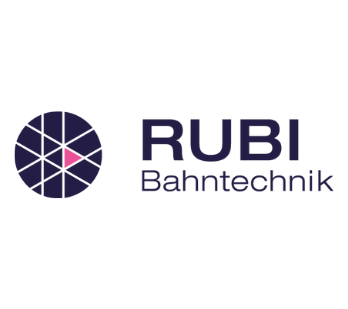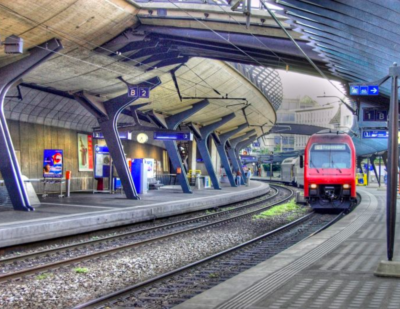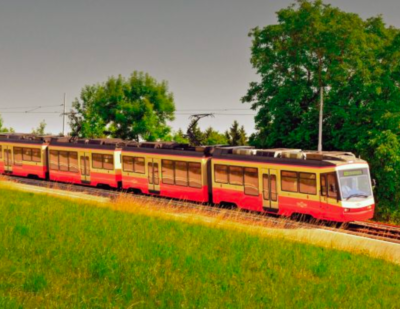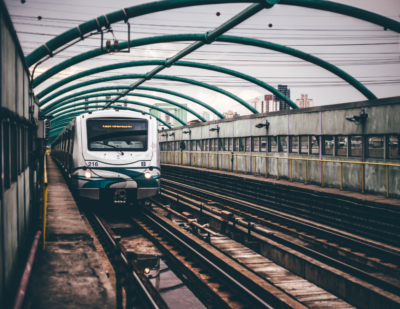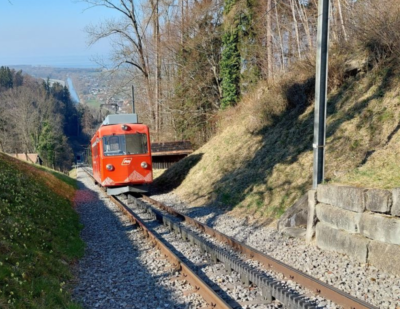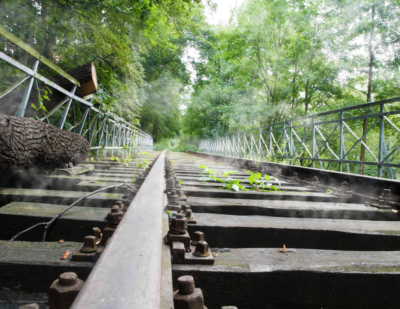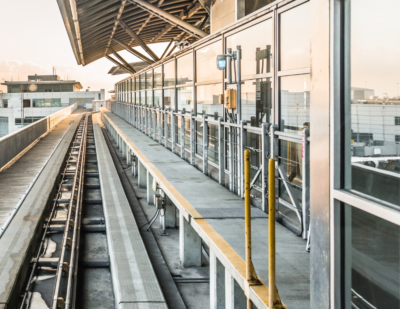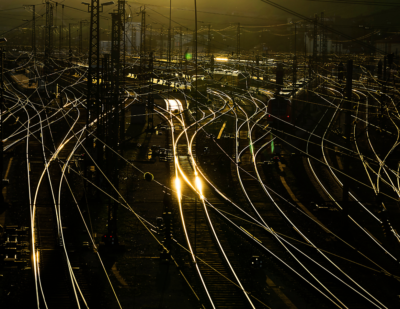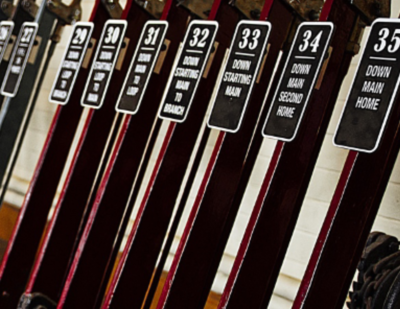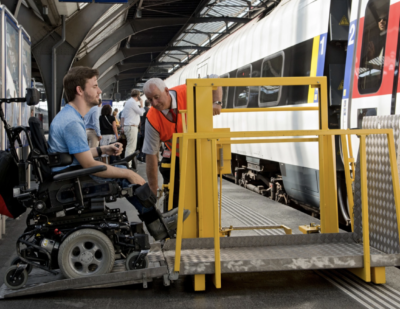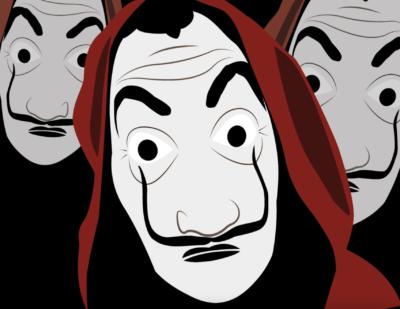Trams taken out of service in Zurich will roll through the Ukrainian city of Vinnytsia in future.
The State Secretariat for Economic Affairs has commissioned RUBI Railtec to handle the project. We answer the most important questions.
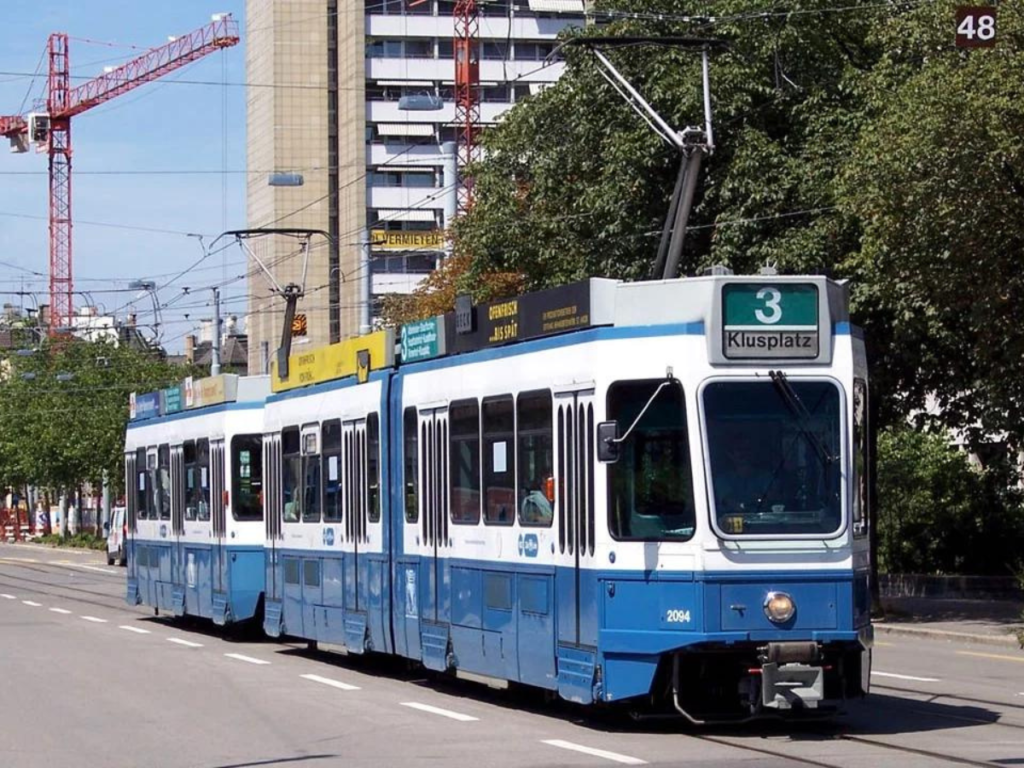
Which Trams Are We Talking About?
In a first phase, Zurich will provide the Ukrainian city with 31 to 35 trams of the second series of the Tram 2000. These have been in service since the 1980s. In addition, four trams of the first series from the 1970s are donated to be used for spare parts.
In a possible second step, 9 to 15 more trams of the second series and 16 trams of the first series would find their way to Ukraine.
The remaining Tram 2000 vehicles of the first and second series will be scrapped—excluding one or two trams that will be displayed in the tram museum or used elsewhere.
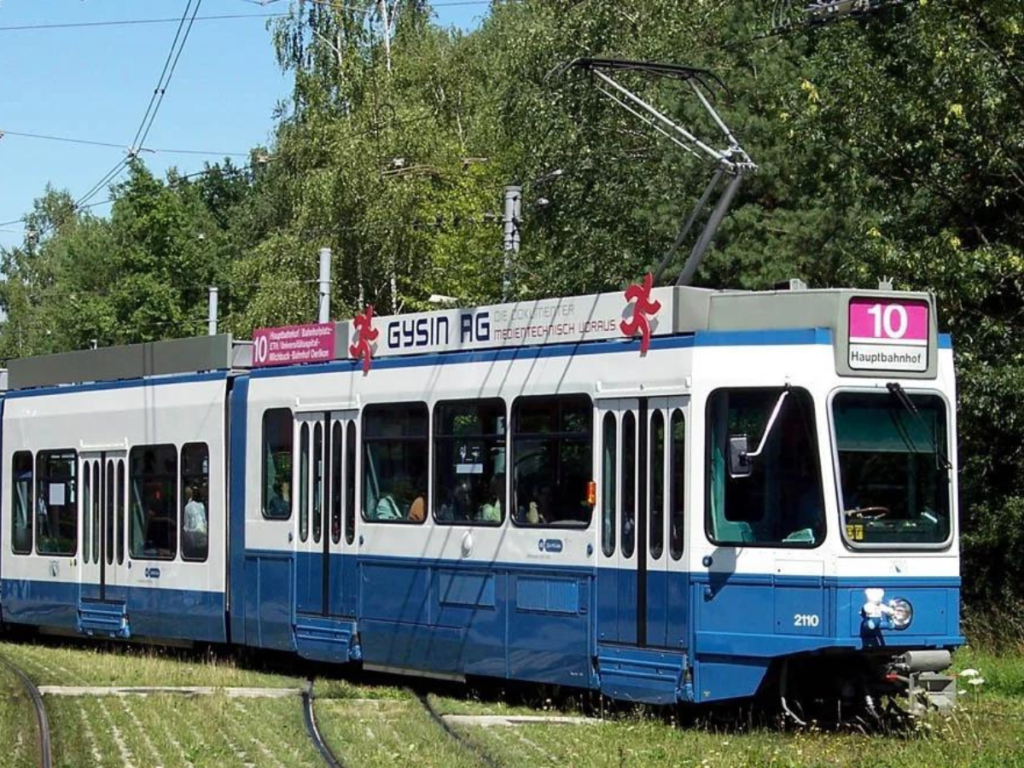
However, the angular Tram 2000s will not disappear completely from Zurich’s cityscape. 23 examples of the third series were supplemented with a low-floor “Sedan” in the 2000s. These remain in service.
Why Does VBZ No Longer Want The Trams?
According to city councillor Michael Baumer, the lack of step-free access is the main reason why VBZ is discarding its Tram 2000. Furthermore, the new Flexity trams offer customers more space.
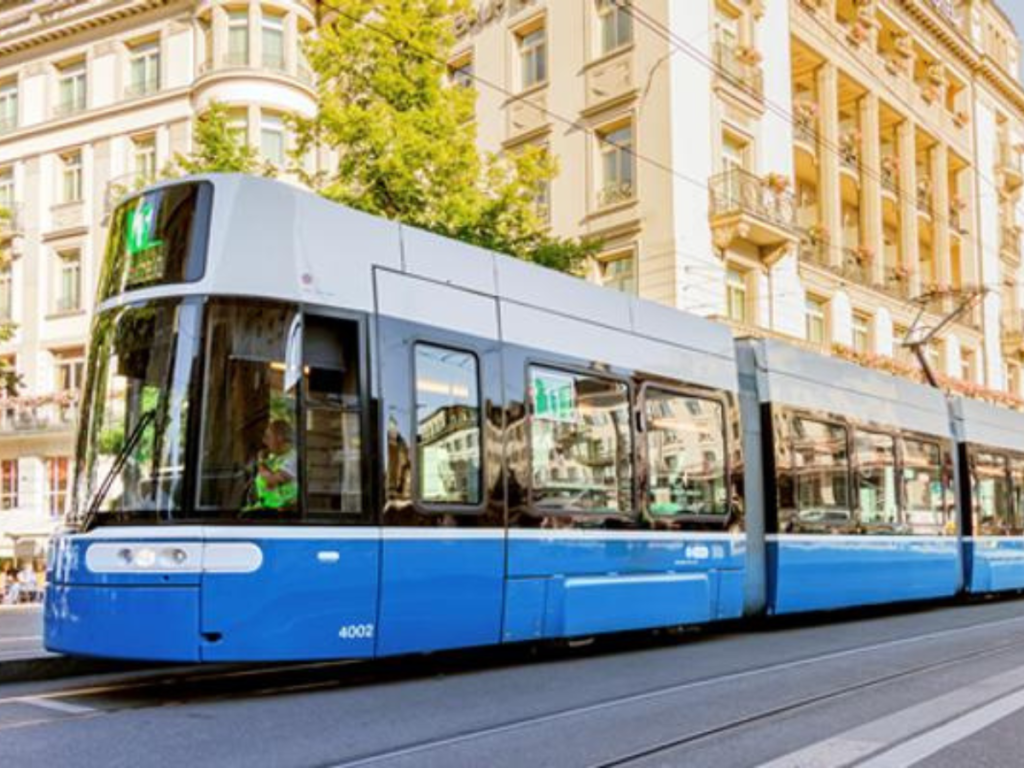
Despite two million vehicle kilometres travelled, the Tram 2000 is still fully functional. Continuing to use them is beneficial, not least from an environmental perspective.
Where is Vinnytsia?
In the southwest of Ukraine. The city has a turbulent history and has been part of Poland, Russia and the Soviet Union.
How Do the Trams Get There?
By train! The route runs through Austria and Slovakia. Trucks are needed for the first and last mile. A maximum of eight trams can be transported at a time.
Why Vinnytsia?
Zurich and Vinnitsa have already worked together several times. The Zurich Transport Authority (VBZ) has already donated 13 Carp and 75 Mirage compositions as well as 3 motorised Mirage trailer cars as spare parts to the city.
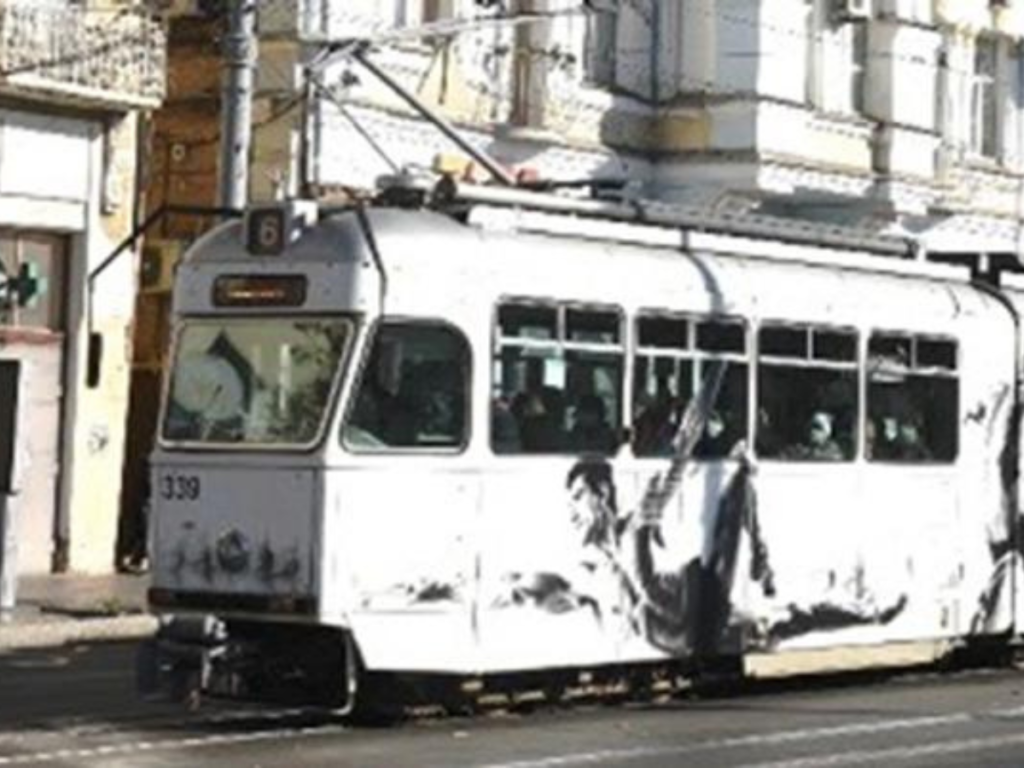
According to Tages-Anzeiger, VBZ wanted to be sure that their discarded trams were in good hands. As the certified best public transport company in Ukraine, the Vinnytsia Transport Company (VTC) was able to guarantee this.
Because VTC has received this award again and the previously donated trams are in good condition, VBZ is continuing the successful cooperation.
How Good Is the Public Transport in Vinnytsia?
The city has a tram network and some vehicles from the Cold War era. In addition, trolley and diesel buses operate in Vinnitsa. The Tram 2000s replace vehicles from Czechoslovakia as well as all the VBZ Carps and some Mirages donated in the 2000s. So after more than 60 years in service, the Carps will now also be retired in Vinnytsia.
The trams of the six lines in Vinnytsia were well used in recent years despite the Covid pandemic and there were waiting times at the stops due protection measures—because passengers were counted, only the front door was opened.
In the next few years, the city wants to renovate dilapidated parts of the tram network and build a direct connection between the station and the city centre.
What Do You Have to Look Out for When Trams Are Given Away?
Of course the trams must be operational at the new location. RUBI Bahntechnik has therefore checked whether the Tram 2000 can cope with Vinnytsia’s radii, gradients and inclines, whether the current voltage and strength are sufficient and whether the vehicles’ loading gauge fits the network. All this is guaranteed. So you can certainly look a gift horse in the mouth.
In addition, the recipient of the trams must be able to deal with their pitfalls. The Tram 2000s are about 40 years old and their maintenance differs from newer vehicles.
“The VTC showed us with the Carps and Mirages that they are well capable of that.”
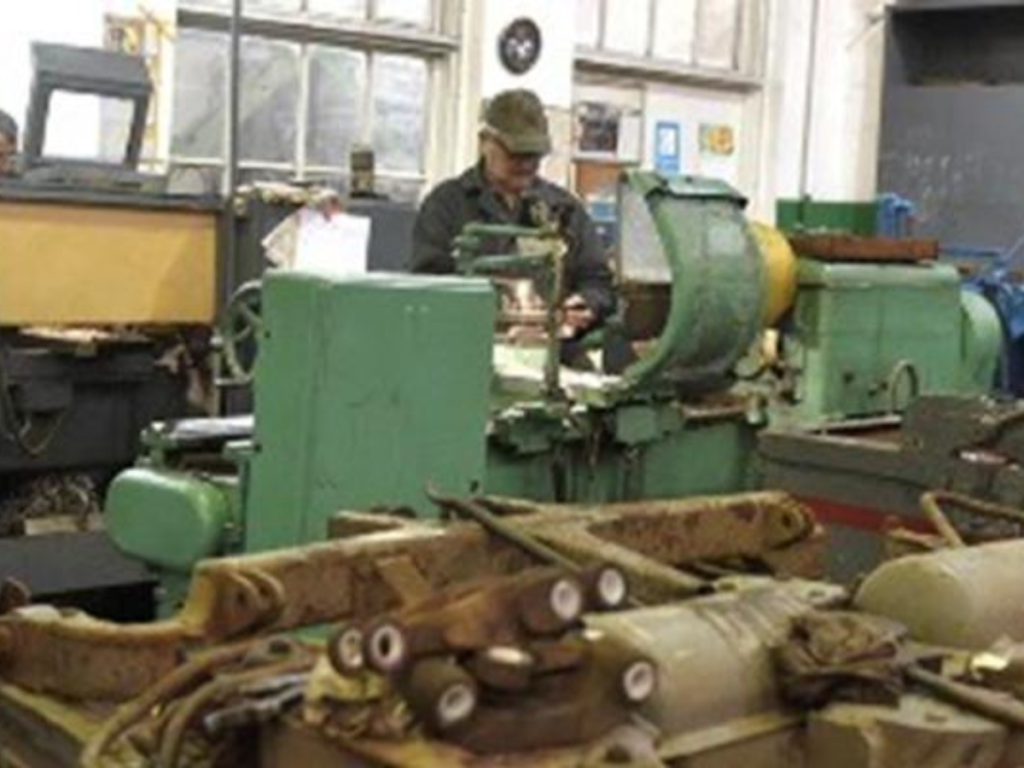
Regardless of whether the VTC will receive another 20 trams as spare-parts donors, the company has to commission the production of certain spare parts in Ukraine. This is the only way to ensure that the vehicles can continue to be used reliably.
What Does the Gift Cost VBZ?
Surprisingly little. Referring to the Carps and Mirages, the then city councillor Andreas Türler told Schweiz aktuell it would cost VBZ about the same to give the trams away or to scrap them. A large part of the costs for the current project is incurred for a four-week internship that five VTC specialists complete in the VBZ central workshop.
Further costs are borne by the “Economic Cooperation and Development” division of the State Secretariat for Economic Affairs (SECO), which is responsible for development cooperation. VTC pay for parts of the internship mentioned above as well as all work done in Ukraine.
Why Is SECO Involved?
The donation of the trams is part of the economic development work between Switzerland and Ukraine. That is why the Confederation is bearing around CHF 3.5 million of the costs. This amount includes the transport of the trams, their refurbishment, the remaining costs for the training of the VTC employees, and the project management by RUBI Bahntechnik.
What Work Is Involved at VTC?
The Tram 2000s have to be adapted to the Ukrainian specifications. For example, they will be equipped with brake lights and front indicators. The technical planning for this is carried out by RUBI Bahntechnik. In addition, all texts on the trams have to be translated into Ukrainian.
VTC will cary out the necessary work in its workshops. During their internship at VBZ, the five VTC technicians will learn all the steps necessary for the maintenance of Tram 2000. This includes repair and refurbishment of bogies and all other components.
In order to make 20 of the compositions step-free accessible, VTC will add a low-floor middle section to the Tram 2000. This work is based on the Sedans of the third series.
When Will the Tram 2000s Start Rolling through Vinnitsa?
That is still unclear. Originally, the vehicles were supposed to be in operation by 2023 at the latest. Due to the Russian invasion, work is currently suspended and can only be resumed when the security and the political situations allow it.
This article was originally published by RUBI Bahntechnik.
